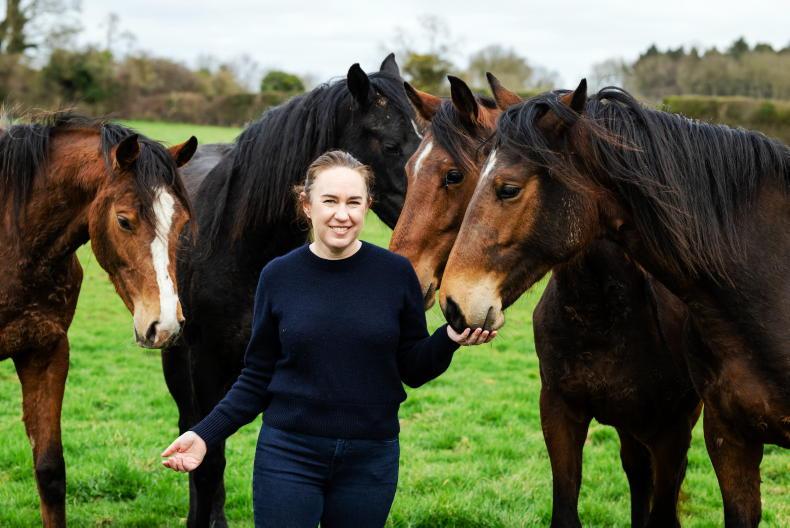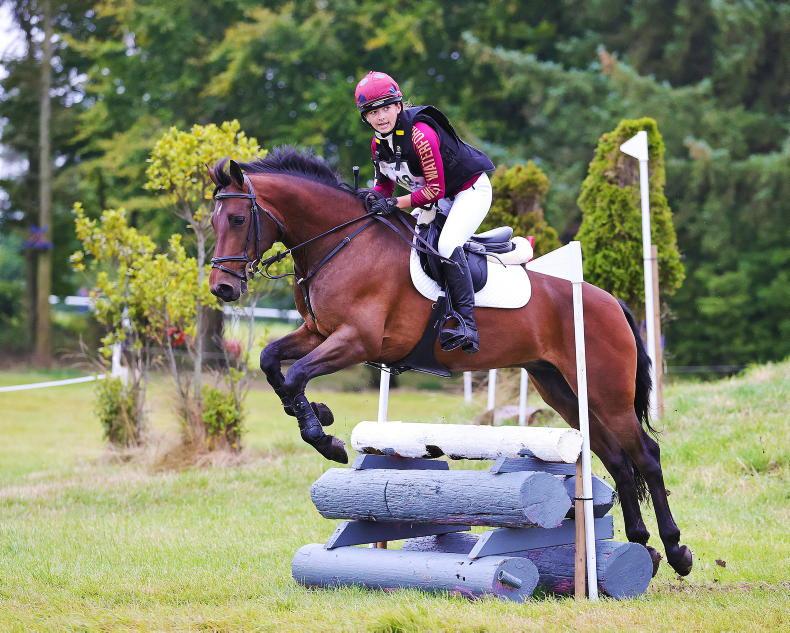BROODMARE management and optimal nutrition are both vital to a successful mating. A range of factors may negatively influence broodmare fertility, some of which are simple to correct while others are more challenging or even inevitable. For the purpose of this article, we will concentrate on the importance of nutrition for pregnant mares; pregnancy requires nutritional support and inadequate nutrition is likely to reduce reproductive success
The role of diet on fertility
A well-balanced diet can improve fertility and reproductive success through several routes, most notably the number and quality of eggs, the environment for the developing foetus, and the health of the neonate.
Research has shown a direct link between the effect of nutrition and body condition on reproductive efficiency in breeding mares. Mares coming into the breeding season in good to moderate body condition (3-3.5 out of 5) start cycling earlier than mares in poor body condition and mares have better conception rates when in a rising plane of nutrition.
Broodmares with poor body condition scores (<3) at mating have been shown to be more likely to suffer from irregular ovulation, reduced conception rates and an increased chance of early embryonic deaths. As many early embryonic deaths occur in the first 40 days of pregnancy it is a nutritionally critical time, especially for the under-weight broodmare.
On the other hand, mares with high body fat scores (>3.5) have been reported to have reduced conception rates (Figure 1) and are more likely to suffer from longer oestrous cycles which can be due to a persistent corpus luteum, increased risk of abnormal follicle maturation and/or insulin resistance.
Obesity can lead to difficulties during foaling and may lead to non-pregnancy related insulin resistance (IR). Broodmares known to be suffering from IR prior to pregnancy may be at increased risk of reduced reproductive function and will need a low starch diet to help normalise insulin dynamics and provide sufficient, but not excessive, calorific intake. Red Mills recommend that you contact their nutritional team for expert advice.
To maximise reproductive efficiency the breeding mare should ideally be placed on a rising plane of nutrition three weeks prior to covering.
GroCare Balancer
A nutrient-rich horse balancer such as Connolly’s Red Mills Grocare Balancer or a broad-spectrum multivitamin and mineral supplement for horses such as Foran Equine Chevinal can be fed to ensure optimal micronutrients are provided.
If needed, additional calories can then be provided by ‘topping up’ with a suitable stud mix or cube for mares. Connolly’s Red Mills Stud Cubes and Stud Mix will fulfill the nutritional requirements of mares in optimal body condition.
Protein for success
Protein is made up of non-essential and essential amino acids. The latter cannot be made in the body and must be provided in the diet. Good quality protein is rich in these essential amino acids and plays important roles in fertility.
Studies have shown that mares fed a diet low in quality protein are more likely to suffer fertility problems including an increased risk of failure to ovulate and the risk of embryonic loss is increased fivefold.
Soyabean meal is the most common source of quality protein included in horse feeds and is used in all of Connolly’s Red Mills horse feed formulations.
In their uncooked state, soyabeans contain the anti-nutrient factor, trypsin inhibitor. Trypsin is an important enzyme involved in the digestion of protein.
Omega 3 fatty acids
Certain omega 3 fatty acids (i.e. eicosapentaenoic acid (EPA) and docosahexaenoic acid (DHA)) may help to improve the mare’s reproductive efficiency, increasing conception and live foal birth rates. They help to inhibit prostaglandin production, thereby prolonging the maintenance of the corpus luteum, which may be particularly useful for mares that have a history of abortion.
Flaxseed oil such as Foran Equine Kentucky Karron Oil is a rich source of omega-3 fatty acids providing omega 6 and omega 3 at similar ratios to that found in grass.
Foran Equine’s Kentucky Karron Oil is a premium equine oil supplement, which has the additional benefit of being emulsified, which facilitates digestive lipolysis (i.e. the breakdown of fats) and subsequent fat bioavailability.
Broodmares must receive a fully balanced diet as several essential trace minerals (copper, selenium, manganese, iodine, zinc, and iron) can influence reproduction.
All Connolly’s Red Mills feeds contain a unique Pro Balance vitamin and mineral package to ensure your broodmares receive all the essential nutrients needed for fertility and reproductive health.




 This is a subscriber-only article
This is a subscriber-only article
 It looks like you're browsing in private mode
It looks like you're browsing in private mode










SHARING OPTIONS: